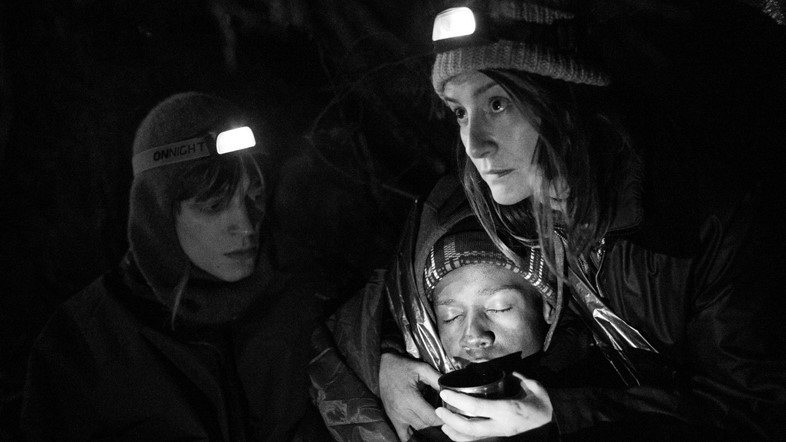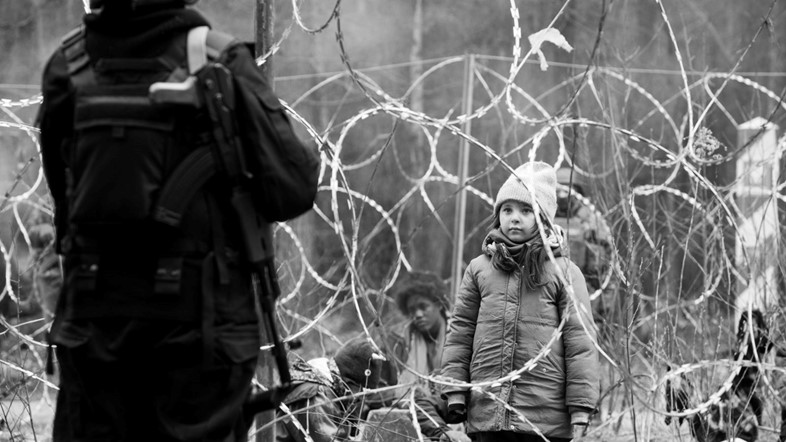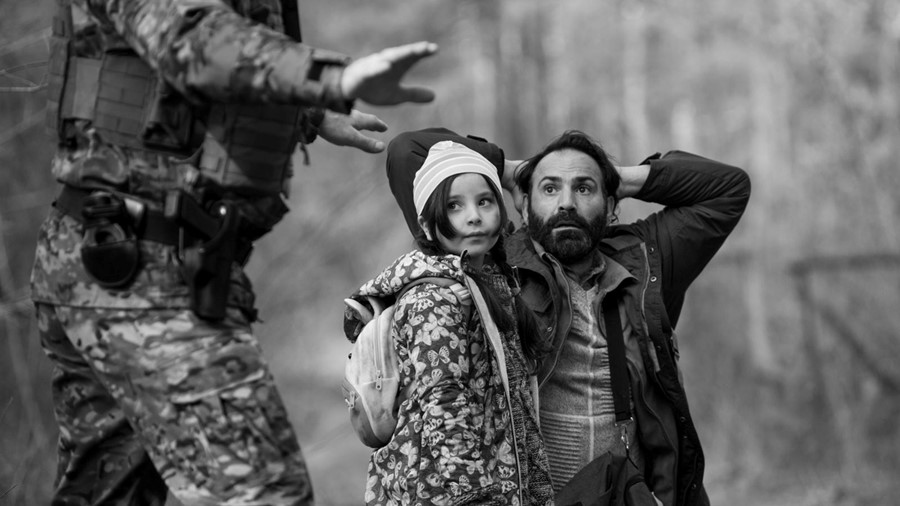Shot guerilla-style on the Poland-Belarus border, Agnieszka Holland’s agonising new drama highlights the plight of refugees being used as pawns in a political conflict
Green Border, Agnieszka Holland’s devastating portrait of the refugee crisis unfolding at the Poland-Belarus border, opens with an unexpected moment of calm. Passengers on a plane are wished a “nice stay in Belarus” by a voice echoing over the Tannoy, while flight attendants hand out plastic-wrapped roses.
It’s little warning of what’s to follow when the Syrian family on board arrive at the border hoping to cross smoothly into the European Union – but swiftly find themselves at the epicentre of a political battlefield. It’s a scene that sums up the “absurdity of the situation” for the director: “You’ll see people in November, December – which is very cold in that area – in summer clothes and flip flops. [Belarusian president] Alexander Lukashenko presented that track as the easy way [into the EU]. And not only easy way, but the civilised way.”
Instead, the dire conditions, hostility and brutality the refugees are faced with crescendo throughout Green Border. In retaliation against sanctions in 2021, Lukashenko threatened to inundate the EU with “drugs and migrants”, encouraging refugees to enter by granting Belarusian visas. Poland, meanwhile, toughened its border policies, leading to a political tug of war between the neighbouring authorities, with refugees endlessly ferried back and forth across the border as a result. “Suddenly they find themselves in the middle of hell without preparation,” says Holland.
Even before it was finalised, the Polish auteur’s stark black-and-white film ignited controversy: alerted via social media, right-wing protesters descended on the production days before shooting wrapped. Then, after Green Border scooped the Special Jury prize at Venice Film Festival, justice minister Zbigniew Ziobro (admitting he hadn’t seen the film) flagrantly likened it to “Nazi propaganda” – especially ironic since Holland’s most revered films Europa Europa and In Darkness were about the Holocaust and she is the granddaughter of survivors.
“The propaganda of the previous government against myself and our film was quite inefficient, because they did it in such an over-aggressive way that the people didn’t believe it,” says Holland. Even so, she wasn’t completely surprised: “From the beginning with my cinematographer, we thought it would be some kind of guerilla shoot.”

Filmed within a narrow 24-day window, the preparation which led up to production was rigorous, Holland speaking with all figures involved – minus politicians (“I knew exactly what they would say”). To encompass the many shades of the story, the film is divided into five parts, told from the point of view of refugees, border guards (who spoke clandestinely with Holland) and the activists trying to bring an end to the situation. While fictional, every event in Green Border – including, at the apex of its horror, a pregnant woman being bowled over the metres-high metal barricade by Polish soldiers – was corroborated by two sources.
Holland opted to shoot in black and white to reinforce the film’s documentary rawness, “but at the same time make it timeless, like a movie from the Second World War,” she says. “For a lot of the inhabitants of the area, they’ve been feeling like it was suddenly a journey to the past.”
In directing the likes of Europa Europa, Holland studied the minute shifts in public opinion and values in the 20th century which led to the persecution of Jews and other marginalised groups in Europe. Concerning echoes can be found in the pattern of propaganda and legislation today, with the newly elected Donald Tusk government, which Holland initially supported, now adopting an anti-immigration stance.
“The new government who we’d been hoping would add a stronger humanitarian aspect to the situation didn’t,” says Holland. “They changed when they realised they could use migrants [as] political gold, especially before elections. Because there were a lot of hopes around the new democratic government, half of the people who had been supporting the opposition at the time when the crisis started suddenly accepted we must be cruel, and we must have victims, because we are defending our borders.”

Since Holland’s film was released, the walls have only been fortified, making it more perilous for families with children to cross. When a Polish soldier was stabbed at the border just days before we speak, soldiers were granted permission to use arms “with conditions which are very vague”, and the director was scapegoated by “the same politicians who had been praising me seven months ago, [who] are now telling me I am responsible with our film for the death.”
Despite the still-deteriorating situation, Holland sees turning her lens to these truths as her moral duty and the plight of refugees as key to understanding the human condition. “[War] is a brutal change which is especially painful, but also very dramatic and shows us the fragility of our values and of our work. I cannot accept that I am not using that tool of expression to speak about the things which I think are crucial. I know that one film or even 50 films and the statements of the intellectuals and so on will not stop the fall, but we need Cassandras,” she says, referring to the Trojan prophet doomed never to be believed. “If not, we will never understand what’s going on.”
Green Border is out in UK cinemas now.
